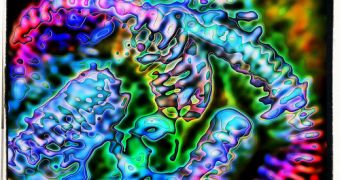A team of scientists from the Bernstein Center of the University Freiburg made a big step towards a way of predicting epileptic seizures, according to the latest issue of the journal 'Epilepsia'.
Epileptic seizures can be very serious and researchers have been working for a while now on a method to predict them, without much success, but that is about to change thanks to this new team of physicists, physicians and neuroscientists.
The researchers worked on ways they could detect pre-seizure alterations of the brain, and as Professor Jens Timmer, physicist at the Freiburg Institute for Advanced Studies (FRIAS) says, “in recent years, several methods were developed to calculate predictive features from the electroencephalogram, which measures brain waves.”
Still there is a lot of work left to be done concerning the individual prediction methods, as there were no significant performances until now.
This new study was part of the European Union funded project “EPILEPSIAE”, and it allowed the team to experiment on whether a combination of several prediction methods could have better results or not.
Following this idea, they decided that a warning was to be given only if there were two alarms triggered by different methods, in a short period of time.
So they recorded the electroencephalogram results from eight patients, measured on the cortex directly, and they found out that for all patients, the combination of detection methods gave good results as it increased performance by over 50%.
Hinnerk Feldwisch-Drentrup from the Bernstein Center Freiburg said that “in our study, about every second seizure could be predicted correctly, but while it is better than a random prediction, in the current state it seems not just yet to be sufficient for real clinical applications.”
Professor Andreas Schulze-Bonhage, head of the Epilepsy Center at the University Hospital Freiburg said that “unfortunately, a considerable fraction of all epilepsy patients do not respond well to commonly used pharmaceuticals.
“For these patients, an automatic prediction of their suddenly occurring seizures would offer great benefit – they could prepare for the epileptic attack, for example by taking fast-acting medicine.”
The next step is for scientists to gather a larger EEG database, in collaboration with France and Portugal, and once they would have reached 200 EEG recordings, then they will continue investigating further improvements, as AlphaGalileo reports.

 14 DAY TRIAL //
14 DAY TRIAL //